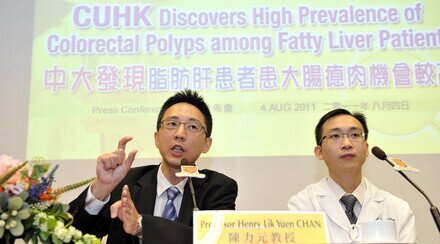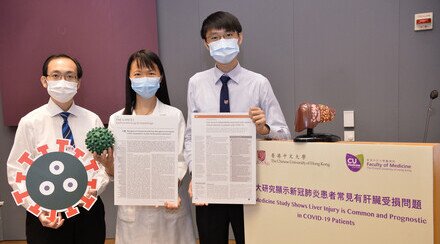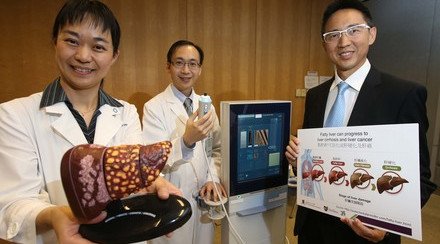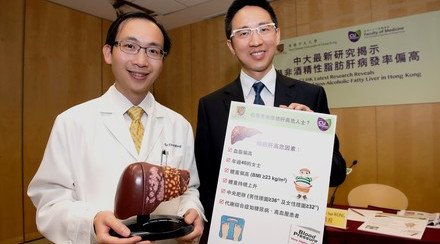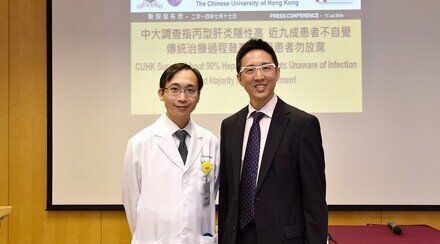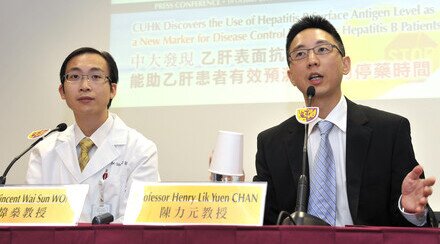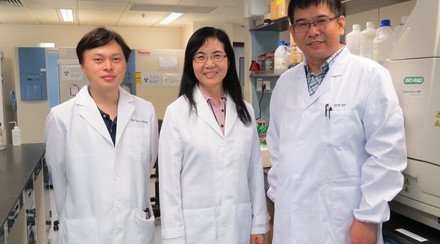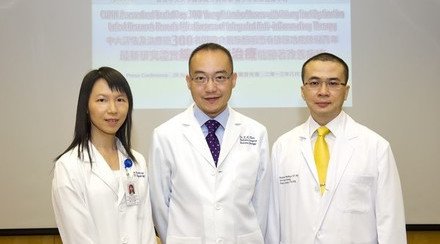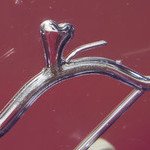CUHK Pioneers the Use of a New Non-Invasive Imaging Technology to Measure Fatty Liver - a problem affecting 27% of the adult population in HK
It is estimated that 1 in 4 adults in Hong Kong suffers from nonalcoholic fatty liver disease (NAFLD), which is the most common liver disease worldwide. NAFLD is associated with metabolic syndrome and may progress to liver cirrhosis and liver cancer, affecting over half of the people with diabetes and obesity. The Center for Liver Health at The Chinese University of Hong Kong (CUHK) pioneers the use of a new non-invasive imaging technology-- Controlled Attenuation Parameter (CAP) to measure fatty liver. With early diagnosis and proper management, liver fat can be reversed and liver cancer can be prevented.

From left: Professor Vincent Wai Sun WONG, Professor, Division of Gastroenterology and Hepatology, Department of Medicine and Therapeutics and Deputy Director, Center for Liver Health at CUHK and Professor Grace Lai Hung WONG, Associate Professor, Department of Medicine and Therapeutics at CUHK present their recent research on the use of a new non-invasive imaging technology to identify mild fatty liver cases which may be missed by ultrasound scan.
Liver biopsy is the conventional test to assess liver fat and the severity of NAFLD. However, since it is an invasive test, many people prefer simple tests such as ultrasound and computed tomography (CT) scan, despite the limitations that ultrasound and CT scan can only pick up liver fat when more than 33% of the liver cells are fatty; and they cannot assess the severity of the disease.
Starting from 2010, Center for Liver Health pioneers the use of a non-invasive imaging technology, New Controlled Attenuation Parameter (CAP), to measure liver fat content. This novel tool is more sensitive than ultrasound scan, which can measure as low as 10% liver fat content and monitor the change of liver fat. The measurement is performed with a probe transducer placed on the skin surface over the right lobe of the liver. The process usually takes 5 minutes.
From 2010 to 2012, CUHK conducted a research on 238 patients who underwent liver biopsy and CAP assessment. 131 patients had fatty liver disease on histology. CAP was able to diagnose 120 patients (92%) with significant degree (>10%) of liver fat. 50 patients had liver fat between 10% and 33%. Compared to ultrasound scan, CAP was able to pick up these extra 38% (50 of 131) patients with significant liver fat. CAP also facilitated the early diagnosis of diabetes mellitus and liver cirrhosis. Among those fatty liver cases missed by ultrasound scan, 16 patients (32%) had diabetes mellitus and 8 patients (16%) had liver cirrhosis.

Professor Vincent Wai Sun WONG and Professor Grace Lai Hung WONG show the new non-invasive imaging technology—Controlled Attenuation Parameter.
In conclusion, CAP is an accurate, non-invasive assessment of liver fat. With this new tool, we are able to identify fatty liver disease which may be missed by ultrasound scan. Therefore, CUHK recommends the use of CAP as the screening test for fatty liver, particularly in patients with diabetes or obesity.
Members of the public who wish to take the CAP test can register via the 24-hour automated telephone system: 3151-5600 (Registration period: 19 Dec 2012 to 19 Jan 2013).






